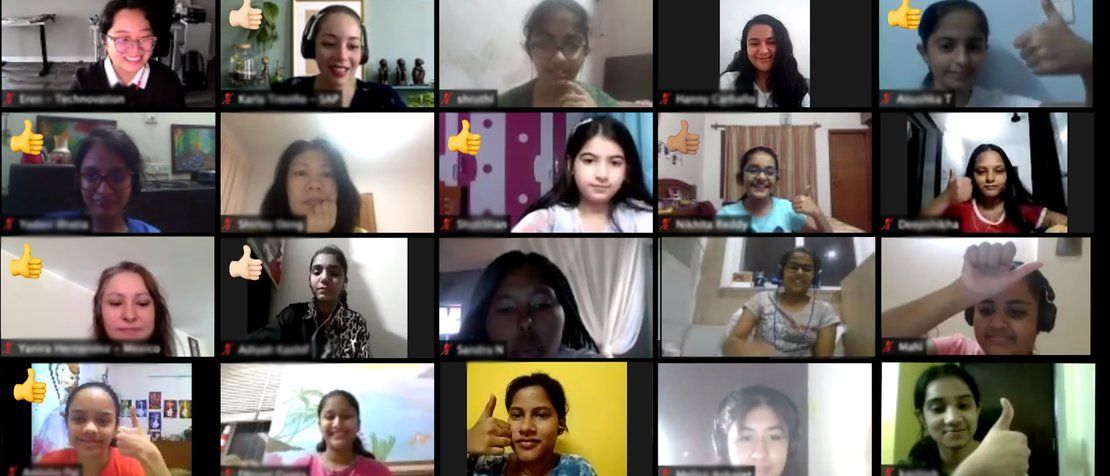
3 best practices for effective AI education online
Based on this pilot, Technovation offers the following tips to run an online learning program.1500 girls in 6 countries developed 250 ideas to address issues ranging from climate change to domestic violence.
3 tips for running an effective online learning program
1. Provide regular, individualized feedback Go beyond providing support through online comments and forums – and make sure girls receive individual feedback on their work consistently. The students who engaged via the classroom’s posting and commenting features felt positively about the program. One student in Pakistan told us: “I enjoyed how Idea Lab made learning more like an interesting activity we were eager to participate in rather than just work from school.” Another student from Brazil told us her favorite part of the program was “that someone always saw my progress and gave me feedback.” Students value attention, being heard, and the opportunity to exchange ideas with mentors more than prizes. As we realized how much students appreciated this feedback, we encouraged our volunteer mentors to engage more often and more regularly with students.
2. Support industry mentors by keeping it simple and well-defined To foster meaningful mentoring opportunities, make sure you understand what a meaningful mentor engagement looks like to both your students and your mentors. It is also crucial to ensure that your online platform can support that sort of interaction. We also recommend keeping mentor-to-student ratios small. Asking individual mentors to support many students makes providing meaningful support difficult, lessening the attention each student receives and limiting the value of the experience for both mentors and students.
3. Come together to celebrate!
At the end of the program come together as a community to celebrate everyone’s hard work and everything you’ve learned. Making time to acknowledge everyone’s efforts creates a more meaningful experience and fosters trust. We found that girls very much wanted to be heard; to share their ideas and encourage their new friends from across the country and around the world. In the middle of so much fear and uncertainty, create space for something bright and fun. The impact of solving real-world problems online After participating in Technovation’s Idea Lab – an entirely online, self-directed, low-touch AI program – at least 60 per cent of students demonstrated improvements in their self-efficacy, technological skills and comfort expressing their ideas. Iara Martinez from Brazil chose to develop an AI-powered tool to support hearing-impaired students in school. She was grateful for support from her mentors – “[they] helped me a lot when I needed to make adjustments to my idea. Having learned about a new area of technology made me open my eyes to new possibilities; it made me think differently about what I would like to study in the future,” Martinez said.
“Having learned about a new area of technology made me open my eyes to new possibilities.”
As for advice for people taking those first scary steps to learning a new technology, Martinez said: “don’t be afraid to engage in something totally new. It is never too late to learn and to create something that can impact the lives of many people.” Project-based online learning has a positive impact on mentors too. According to Ericsson IP solutions engineer Sunday Orjingene, as a mentor for the Technovation Idea Lab pilot, he wants to “support as many mentees as possible to realize their dreams of exploring the world of technology.” When asked about what he found challenging about mentoring in an online-only role, Orjingene noted that “online learning has its challenges but not more than it has advantages. I was glad to see a lot of energy from the girls – and the flexibility of remotely supporting them from different countries definitely motivated me.”
“Online learning has its challenges, but not more than it has advantages.”
Despite the challenges facing online learning opportunities, online learning and remote mentorship hold great potential. It is vital to keep students – especially those from vulnerable communities, and especially girls – engaged in educational opportunities and to make sure those opportunities prepare them to be leaders and creators with the latest technologies. Together we can support each other to persevere, and together we can build more resilient communities equipped for an uncertain future.
Image credit: Technovation
